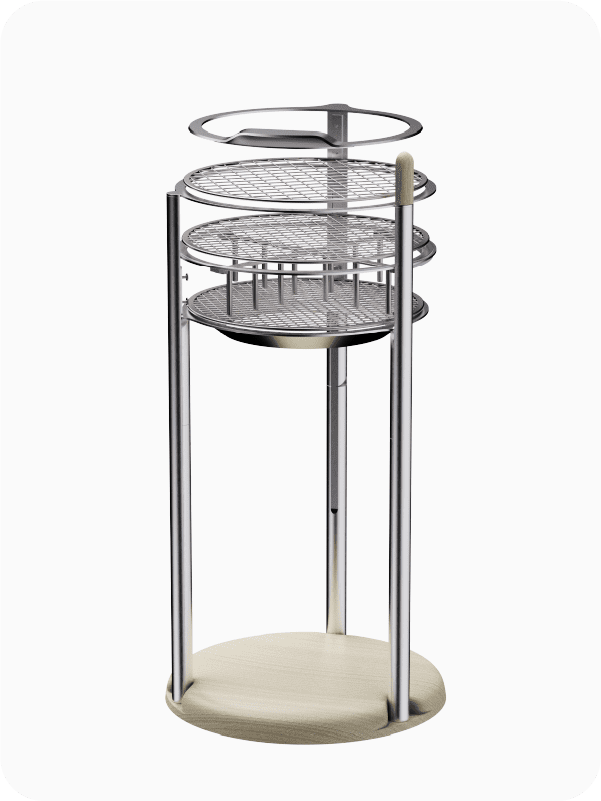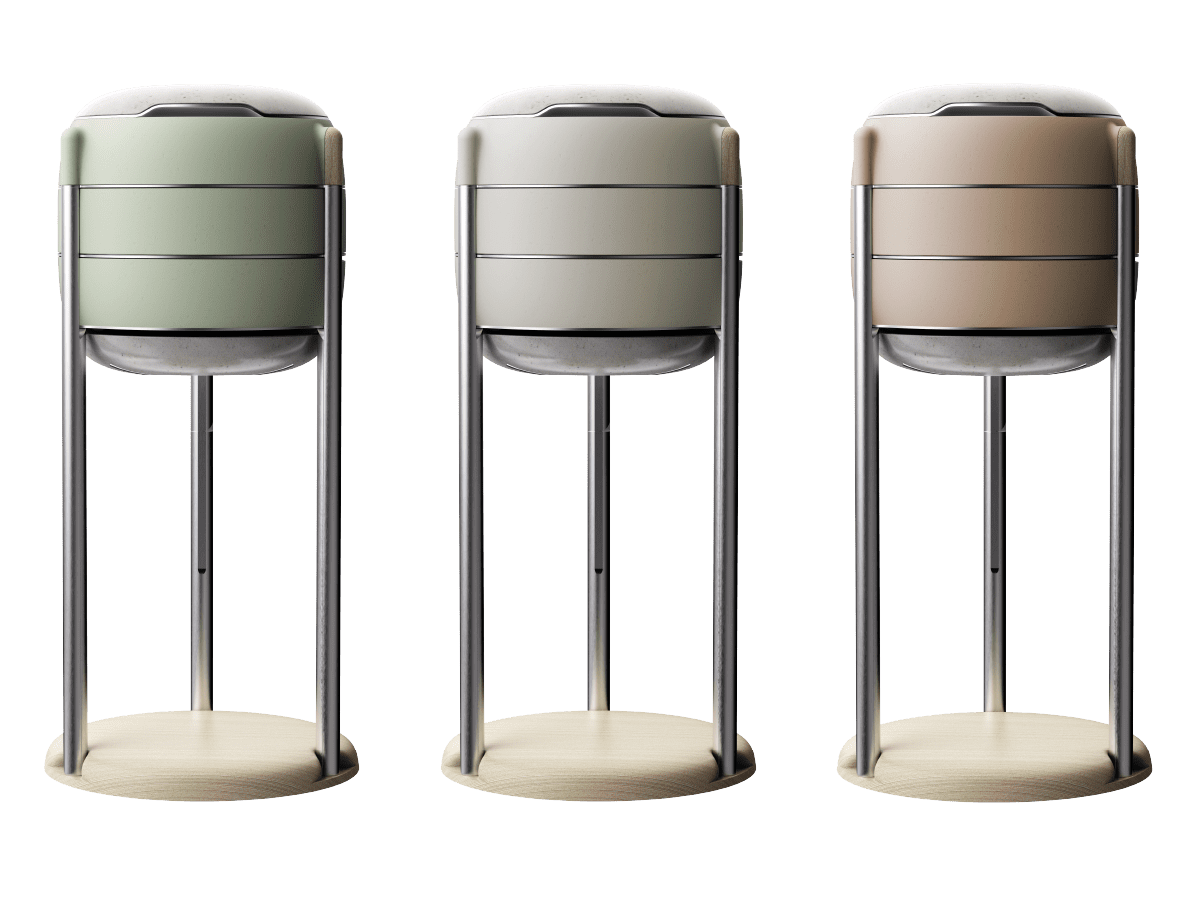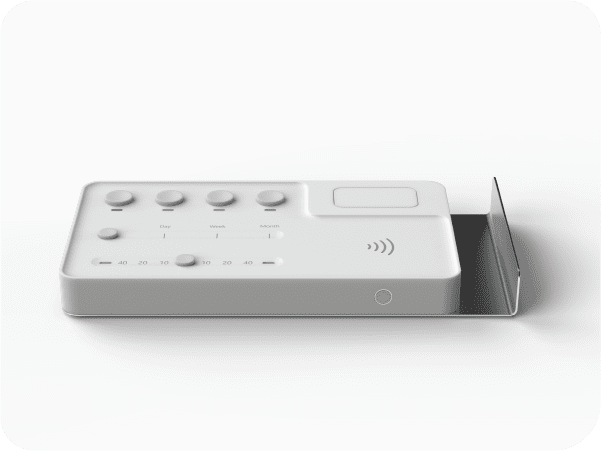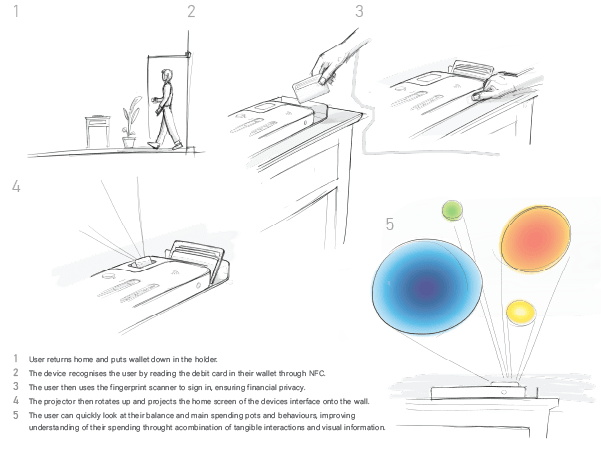
Final Project
Terra
Arable soils in the UK have already lost up to 60% of their soil organic carbon due to an overdependence on disruptive agricultural techniques and overuse of chemical fertilisers. To naturally restore the fertility of our soils, change starts by taking advantage of one of our largest untapped sources of organic carbon – food waste.
Terra aims to decentralise food waste processing by enabling users to compost cleanly at home, no matter how little outdoor access they have.


Clean composting
Terra’s interior styling aims to change perceptions of home composting and create a case for seeing it as a piece of furniture, rather than just a bin. It’s minimal aesthetic ensures it sits just as well in a kitchen as it does in a lounge.
Closing the attitude-behaviour gap
Poor existing perceptions of at-home composting conflict with growing public desire to embrace sustainable behaviours. Terra aims to bridge that gap by providing a clean, refined composting experience that ensures no soil touches the floor.

The ceramic chambers are made from 100% recycled clay, breathability regulates moisture, ensuring the composting process remains odour-free. Designed for full disassembly, ownership and circularity are engrained in Terra’s identity.

Unlike other home composters that require all the compost to be harvested at once, Terra enables the user to collect only the amount they need at a time. The funnelled sifting layer breaks up the compost, and sifts it directly into the collection pot, ensuring the user’s hands never get dirty.

Designing for Dyscalculia – 1 week project
Personal finance management device designed to mitigate financial anxiety among people with dyscalculia and increase the tangibility of spending for people who struggle with traditional budgeting tools.


Combination of clear visual information and tactile interactions allow the user to ‘physically move’ the money while seeing the projected spending information adapt in real-time.

Destigmatising garment repair



Brief – Redesign jeans to be more socially and environmentally sustainable
For people who can’t afford to replace an item of clothing, visible repair is associated with the guilt and shame of not being able to afford to replace it. For people who can afford to
replace it, repair is associated with care and conscious consumption. That needs to change.
The proposed concept is an app that works to increase perceived behavioural control for first time repairers by creating decorative stitch patterns with generative AI that are unique to the garment, available repair fabric, and user.
Through the celebration of repair and supportive tone of the app, the concept aims to encourage lifespan extension of the user’s jeans by increasing the personal value of the garment, while also reinforcing the environmental benefits.
Awards
- Diploma of Professional Studies (DPS)
Work Experience
Sand & Birch Studio, Italy
Visionary Thinkers
Visionary Creators
Visionary Makers